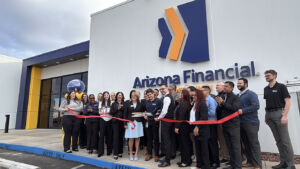Running a restaurant is an exciting yet challenging venture. From crafting the perfect menu to ensuring exceptional customer service, there’s no shortage of things to manage. However, one of the most critical decisions you’ll make is determining the right amount of coverage to protect your investment. Securing adequate restaurant business insurance is not just a legal requirement in many cases, but also a smart safeguard against unexpected risks. Here’s a guide to help you navigate the process and ensure your restaurant has the protection it needs.
MORE NEWS: Here are the 50 biggest employers in Arizona
Understand the Unique Risks of Your Restaurant
Every restaurant has its own set of risks, influenced by factors like its location, size, and type of cuisine. A small café may face different risks than a large fine-dining establishment. Some common risks include:
- Property damage: Fires, floods, or other natural disasters can wreak havoc on your restaurant’s physical space.
- Liability claims: Customers could slip and fall, or become ill from contaminated food.
- Employee injuries: Kitchen environments can be hazardous, with risks ranging from burns to repetitive stress injuries.
- Business interruptions: Unforeseen events might force you to close temporarily, impacting your revenue.
Understanding your specific risks will help you determine which types of coverage you need and how much is appropriate.
Types of Coverage to Consider
When choosing restaurant business insurance, it’s essential to know the different types of policies available. Here’s a breakdown of the key options:
General Liability Insurance
This covers third-party claims for bodily injury or property damage. For example, if a customer slips on a wet floor, general liability insurance can cover their medical expenses and any legal fees.
Commercial Property Insurance
This protects your building, equipment, furniture, and inventory from damage due to fire, theft, or other covered perils.
Workers’ Compensation Insurance
If you have employees, most states require you to carry workers’ compensation insurance. It covers medical costs and lost wages if an employee is injured on the job.
Business Interruption Insurance
Also known as business income insurance, this covers lost revenue and operating expenses if your restaurant is forced to close due to a covered event.
Liquor Liability Insurance
If your restaurant serves alcohol, you’ll need this coverage to protect against claims related to intoxicated patrons causing harm to themselves or others.
Assess the Value of Your Assets
Before purchasing insurance, take stock of everything your restaurant owns. This includes the building (if you own it), kitchen equipment, furniture, and inventory. Assign a realistic value to these items to ensure you have adequate coverage in case of a loss.
If your restaurant leases its space, review your lease agreement. Some landlords require tenants to carry specific types of coverage, such as property insurance or liability coverage.
Calculate Revenue and Operating Expenses
Your revenue and operating costs play a crucial role in determining the right amount of coverage. For instance, business interruption insurance should cover your average monthly income and fixed expenses, like rent and payroll, during a shutdown. Having accurate financial data ensures you don’t underinsure or overpay for coverage.
Consider Your Deductible and Premium Balance
Insurance policies come with deductibles—the amount you pay out-of-pocket before coverage kicks in. While higher deductibles often mean lower premiums, they also require you to cover more in the event of a claim. Strike a balance between affordability and risk by choosing a deductible that aligns with your financial situation.
Regularly Review and Update Your Coverage
The restaurant industry evolves, and so do your business needs. If you expand your menu, renovate your space, or purchase new equipment, your coverage requirements may change. Regularly reviewing your policy ensures you remain adequately protected.
Consult an Insurance Specialist
Restaurant business insurance can be complex, so working with an experienced insurance broker or agent is invaluable. They can help you understand policy details, compare quotes, and ensure you’re not overlooking critical coverage.
Choosing the right amount of coverage for your restaurant is a vital step in securing its future. By understanding your risks, assessing your assets, and consulting with insurance professionals, you can tailor a policy that meets your needs and protects your investment.




